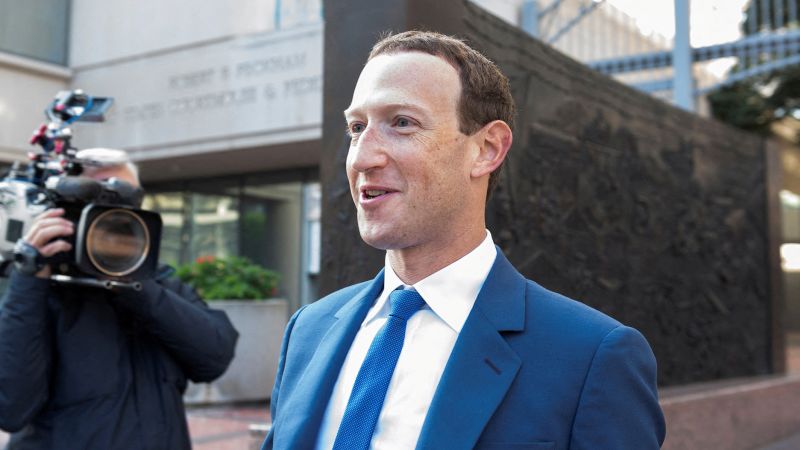

CNN
—
Mark Zuckerberg said Meta is creating a new “top-level product group” to “turbocharge” the company’s work on AI tools, as it attempts to keep pace with a renewed AI arms race among Big Tech companies.
In a Facebook post late Monday, Zuckerberg said the elite new group will initially be formed by pulling together teams across the company currently working on generative AI, the technology that underpins the viral AI chatbot, ChatGPT. This group will be “focused on building delightful experiences around this technology into all of our different products,” Zuckerberg said, starting with “creative and expressive tools.”
“Over the longer term, we’ll focus on developing AI personas that can help people in a variety of ways,” Zuckerberg said. Those AI features may include new Instagram filters as well as chat tools in WhatsApp and Messenger, he said.
The planned efforts come amid a heightened AI frenzy in the tech world, kicked off in late November when Microsoft-backed OpenAI released ChatGPT publicly. The tool quickly went viral for its ability to generate compelling, human-sounding responses to user prompts. Microsoft later announced it was incorporating the tech behind ChatGPT into its search engine Bing. A day before Microsoft’s announcement, Google unveiled its own AI-powered tool called Bard.
Meta, by comparison, has been quiet so far. Yann LeCunn, Meta’s Chief AI scientist, has expressed some skepticism surrounding the ChatGPT hype. “It’s not a particularly big step towards, you know, more like human level intelligence,” LeCunn said in one interview late last month. “From the scientific point of view, ChatGPT is not a particularly interesting scientific advance,” he added.
Generative AI tools are built on large language models that have been trained on vast troves of online data to create written and visual responses to user prompts. But these systems also have the potential to perpetuate biases and misinformation. Already, both Microsoft and Google’s AI tools have run into controversies for producing some inaccurate or uncanny responses.
As with Microsoft and Google, there are some risks for Meta in embracing this technology. Last year, before the ChatGPT hype, Meta publicly released an AI-powered chatbot dubbed “BlenderBot 3.” It didn’t take long, however, for the chatbot to start making offensive comments.
In his post Monday, Zuckerberg said: “We have a lot of foundational work to do before getting to the really futuristic experiences, but I’m excited about all of the new things we’ll build along the way.”
